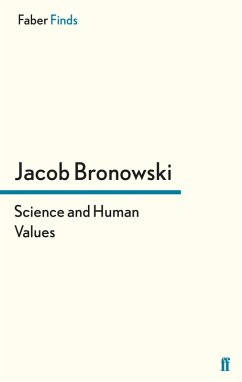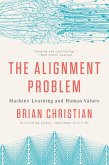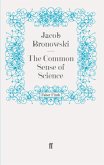After such knowledge, what forgiveness? With care and erudition Bronowski argues that scientific endeavour is an essentially creative act, part of a great shared human interest in ourselves and the world around us; and, routinely, a process of trial-and-error, the end of which is not - cannot be - preordained.
'Above all, Bronowski strove to make science and technology answerable to social progress, to 'human values.' He anticipated the deepening gap between the 'two cultures' and knew that the sciences must be restored to a place in political common sense.' George Steiner
Dieser Download kann aus rechtlichen Gründen nur mit Rechnungsadresse in A, B, BG, CY, CZ, D, DK, EW, E, FIN, F, GR, H, IRL, I, LT, L, LR, M, NL, PL, P, R, S, SLO, SK ausgeliefert werden.









